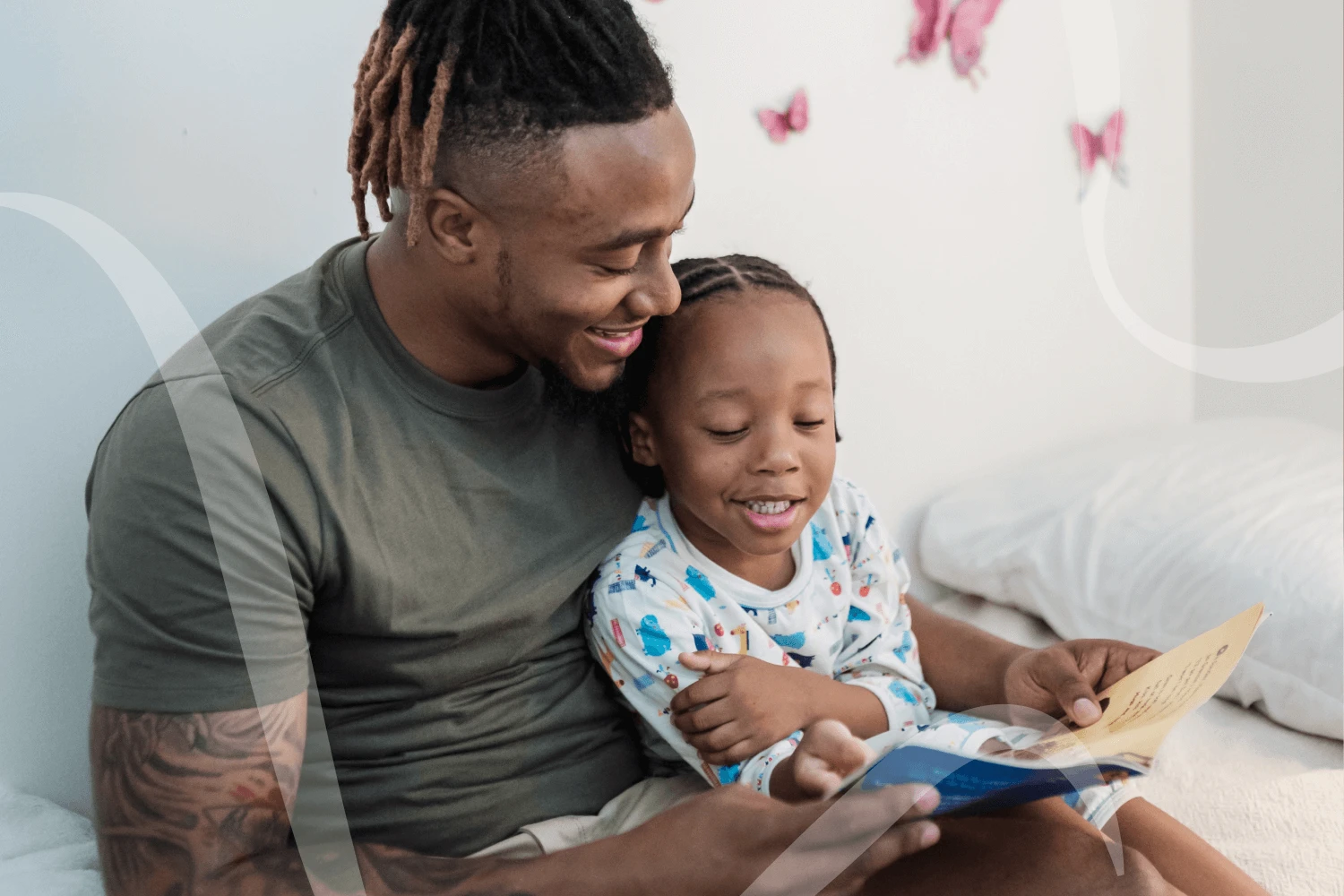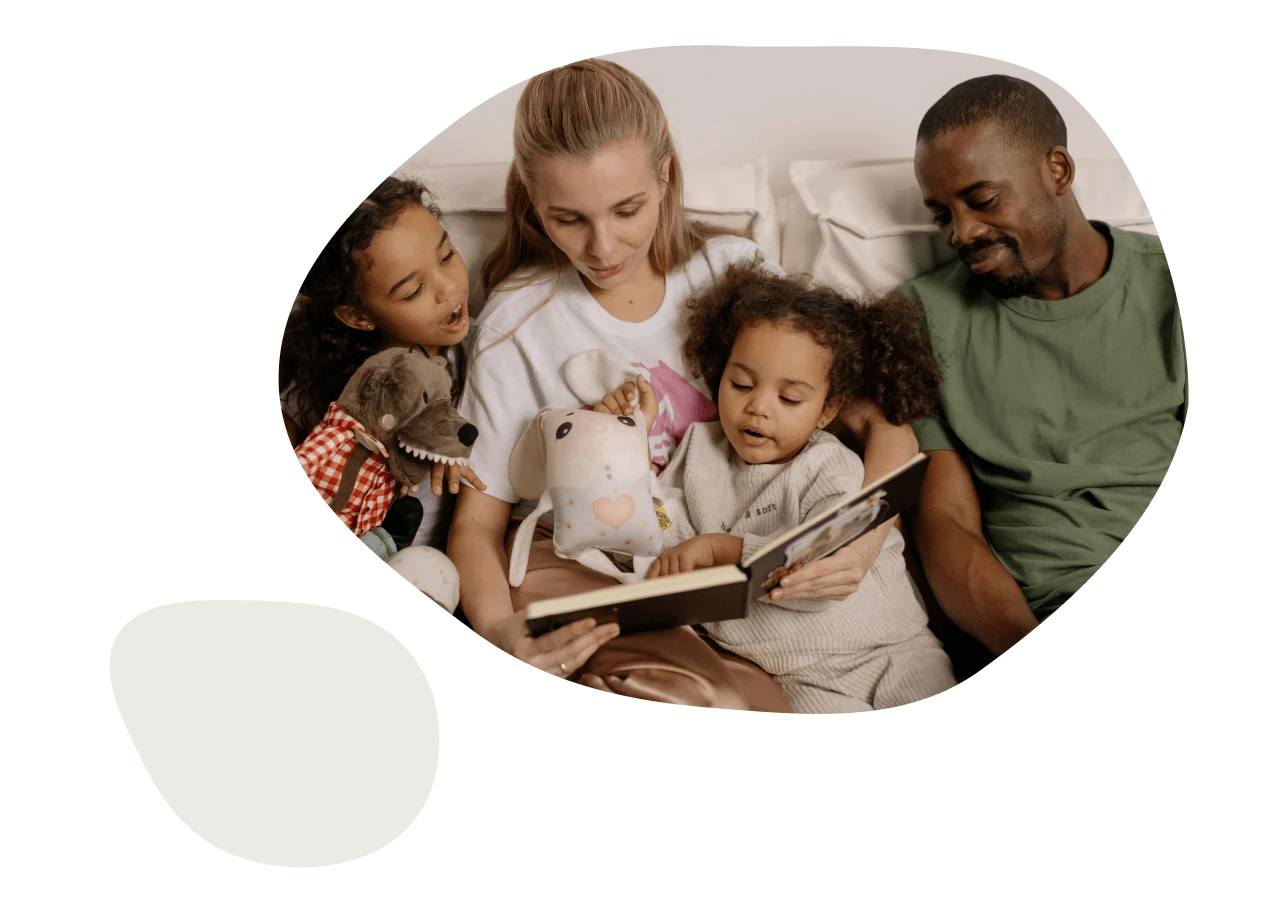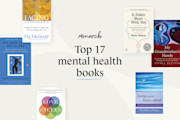Several recent surveys have found mental health concerns among U.S. adolescents appear to be increasing. It's a tough time to be a kid or teen—or to be a parent or teacher. Perhaps books about mental health for children, tweens, and teenagers could help start important conversations?
To that end, we’ve found some excellent mental health books for teens and kids to share.
First, we explore the rise in poor mental health indicators among children and adolescents.
A new 2022 survey conducted by CVS Health found American teens are going to teachers more often than to parents to talk about mental health.
Over three-quarters of teachers (78%) said that they had been approached by a child to discuss a mental or emotional concern, compared to 58% of parents.
Even prior to the collective trauma of the COVID-19 pandemic, Centers for Disease Control (CDC) 2019 data found poor mental health indicators had already been rising among adolescents.
78% of teachers said that they had been approached by a child to discuss a mental or emotional concern.
The CDC survey results showed that more than one-third (37%) of U.S. high school students reported experiencing persistent feelings of sadness and hopelessness in 2019—a 40% increase since 2009.
Furthermore, between 2016-2020, close to 30% of (non newborn) hospital admissions among children were for mental health needs, according to a 2022 report from Health Care Cost Institute.
In fall 2021 the American Academy of Pediatrics (AAP) declared a national emergency in child and adolescent mental health.
And U.S. Surgeon General Dr. Vivek Murthy recently warned that the pandemic—with its lack of socialization and ongoing worries about getting sick—had worsened the mental health crisis for kids and teens.
The Surgeon General’s topline recommendations to improve children’s mental health include:
Recognizing that mental health is an essential part of overall health.
Empowering youth and their families to recognize, manage, and learn from difficult emotions.
Ensuring that every child has access to high-quality, affordable, and culturally competent mental health care.
How parents and teachers can help kids with mental health
When feelings become overwhelming, therapy and counseling may be helpful to children, teens, and parents—and teachers.
Another actionable way to heed the Surgeon General’s recommendations to empower children and teens to recognize and learn from difficult emotions, is through providing age-appropriate book recommendations to help kids empathize with others and better understand themselves.
Books about mental health topics that explore the same challenges young readers are experiencing can help them feel less alone.
“Reading can improve our understanding of others, and it helps us to empathize as well,” says Monarch therapist Ellen Biros, MS, LCSW.
Biros describes reading as a positive coping skill that offers benefits including stress reduction.
"I encourage my clients to read about mental health topics outside of therapy sessions in order to gain more understanding of their issues and to reinforce what we have been discussing together,” she says.
When feelings become overwhelming, therapy and counseling may be helpful to children, teens, and parents
There’s even a therapeutic modality called bibliotherapy that’s been in use since the 1800s. Bibliotherapy uses reading fiction and non-fiction in treating mental health disorders in kids or adults.
Here are 18 books about mental health for kids and teens.
The list ends with some mental health books for parents, since emotionally healthy parents can help model emotional regulation for their kids. For adults, we also created a list of 17 books therapists recommend.

Recommendations from Ellen Biros, MS, LCSW
YA books about mental health for teens ages 13+
1. Eliza and Her Monsters by Francesca Zappia
In this young adult (YA) novel, 18-year-old Eliza Mirk is the creator of a popular webcomic who’s trying to discover who she is in the offline world. The book explores art, fandom, and the importance of being true to yourself.
2. Mosquitoland by David Arnold
This YA novel explores divorce, stepparents, illness, and death. It also includes a list of discussion questions at the end. As 16-year-old Mim Malone bounces around the country between her dad and new stepmom and her sick mother, she explores her own identity and her evolving definition of love.
3. All the Bright Places by Jennifer Niven
In this New York Times bestselling YA romance novel that was adapted into a Netflix movie, two teens are brought together by their personal struggles and their desire to escape. One deals with survivor's guilt, while another is obsessed with death. It includes issues of suicide, depression, loss, and forgiveness.

5 books about mental health for kids ages 8-12
1. Wonder by R.J. Palacio
Palacio’s debut novel deals with the topic of bullying for a slightly older reader. The main character, Auggie, has a facial difference, and he is bullied when he starts fifth grade. This story of empathy and acceptance teaches children the importance of compassion, resilience, and character over looks.
2. Just Breathe by Meditation, Mindfulness, Movement and More written by Mallika Chopra and illustrated by Brenna Vaughan with a forward by Deepak Chopra
For those who need help coping with stress or anxiety, this nonfiction book provides a kid-friendly overview of mindfulness and meditation practices, including loads of tips and exercises. Brenna Vaughan’s beautiful full color illustrations break up the text, keeping kids engaged.
3. The Summer of June by Jamie Sumner
Anxious tweens may relate to this newly released novel about 12-year-old June Delancy who sets a goal of beating her anxiety one summer. June feels like a mouse, but she wants to be a lion. Over the ups and downs of that summer, she learns about courage, friendship, and new beginnings.
4. OCDaniel by Wesley King
There aren’t a lot of books showing how obsessive compulsive disorder impacts children. In this coming-of-age novel, a boy named Daniel learns to deal with social rejection and his OCD when he gets swept up in a mystery.
5. Diary of a Brilliant Kid: Top Secret Guide to Awesomeness by Andy Cope, Gavin Oattes, and Will Hussey
The tween years can be tricky as kids try to make sense of the world and their identities while living inside constantly evolving bodies and emotions. This diary includes a collection of quotes, stories, funny facts, illustrations and interactive exercises to guide tweens through the process of self-discovery, showing how exciting it can be.

Mental health books for kids ages 4-8
1. Chrysanthemum written and illustrated by Kevin Henkes
Bullying increases in late childhood and peaks in the teen years. In Chrysanthemum, kids meet a lovable mouse who’s bullied at school because of her name. Author and illustrator Kevin Henkes deftly weaves in themes of forgiveness and acceptance of others as he explores bullying in a gentle, kid-friendly way. It’s a great back-to-school book to remind kids about treating others with respect. Kids and parents will love it year round.
2. In My Heart: A Book of Feelings written by Jo Witek and illustrated by Christine Roussey
In this New York Times bestselling picture book, author Jo Witek uses kid-friendly similes to explore big and small feelings. Heart cutouts and whimsical illustrations span the entire book, adding a lovely visual representation of the feelings portrayed in the text.
3. My Many Colored Days written by Dr. Suess and illustrated by Steve Johnson and Lou Fancher
Bouncy rhymes from Dr. Suess and vibrant paintings by Steve Johnson and Lou Fancher come together in this picture book that teaches kids it's normal to experience different emotions in one day or on different days. This book is a great entry point for parents wanting to discuss emotions with kids.
4. When Sophie Gets Angry — Really, Really Angry… written and illustrated by Molly Bang
Anger can feel upsetting to kids who don’t know how to cope with such big feelings. Through this story of a little girl named Sophie, kids learn that it’s okay to feel angry and that sometimes you need space to cool off.

2 books about mental health for kids and toddlers, newborn-to-age 4
1. B is for Breathe: The ABCs of Coping with Fussy & Frustrating Feelings by Dr. Melissa Munro Boyd
Clinical psychologist and author Dr. Melissa Munro Boyd uses an ABC structure to teach kids how to express their feelings in healthy ways, such as counting (C), dancing (D), or creating a vision board (V). The fun, colorful illustrations show a diverse array of kids modeling habits that can help manage emotions. It’s a great book for toddlers and young children to help them build emotional awareness.
2. The Feelings Book written and illustrated by Todd Parr
Beloved author/illustrator Todd Parr introduces a wide range of emotions such as silly, scared, and celebratory, showing how feelings can change quickly. Through Parr’s trademark simple—yet quirky—text and bold illustrations, toddlers and young kids learn to express and differentiate emotions. This book is available as a board book or paperback and in Spanish.
Books about mental health for parents
1. The Emotionally Healthy Child: Helping Children Calm, Center, and Make Smarter Choices by Maureen Healy
An expert on children’s emotional health, author Maureen Healy shows in three steps how parents can help their children develop and strengthen emotional resilience and create habits that encourage an emotionally healthy mindset. Oftentimes, children who act out or shut down haven’t learned how to cope with and express uncomfortable emotions. With an introduction by the Dalai Lama, this book gives parents the tools to help their kids manage tough emotions.
2. The Four Agreements: A Practical Guide to Personal Freedom by Don Miguel Ruiz
This best-selling book draws on ancient Toltec wisdom to show how self-limiting beliefs create needless suffering and hold us back. To counter the unnecessary hurt, it maps out a four-part code of conduct for better living. These include: be impeccable with your words, don’t take anything personally, don’t make assumptions, and always do your best. These tenets are useful for parents, children, and anyone else looking to lead a more meaningful life.
3. The Whole-Brain Child: 12 Revolutionary Strategies to Nurture Your Child’s Developing Mind by Daniel J. Siegel, M.D. and Tina Payne Bryson, PhD
Neuropsychiatrist Daniel J. Siegel and parenting expert Tina Payne Bryson present twelve strategies to foster healthy brain development, nurturing calmer, happier kids. It’s a practical approach to parenting that explains the science of how a child’s brain matures in layperson’s terms.
4. Anxious Kids, Anxious Parents by Reid Wilson, Ph.D. and Lynn Lyons
Many kids struggle with anxiety, which can manifest in frequent stomachaches or a refusal to participate in after school activities. This book draws on current research and the author’s professional experiences to outline solutions centered around seven key principles. Given the prevalence of anxiety in children (and parents), this book provides tools for parents to calm their own anxieties and change their thought patterns as they help kids do the same.

READ NEXT: 17 Mental Health Books Therapists Recommend
Need to find a therapist near you? Check out the SimplePractice Monarch Directory to find licensed mental health therapists with availability and online booking.



